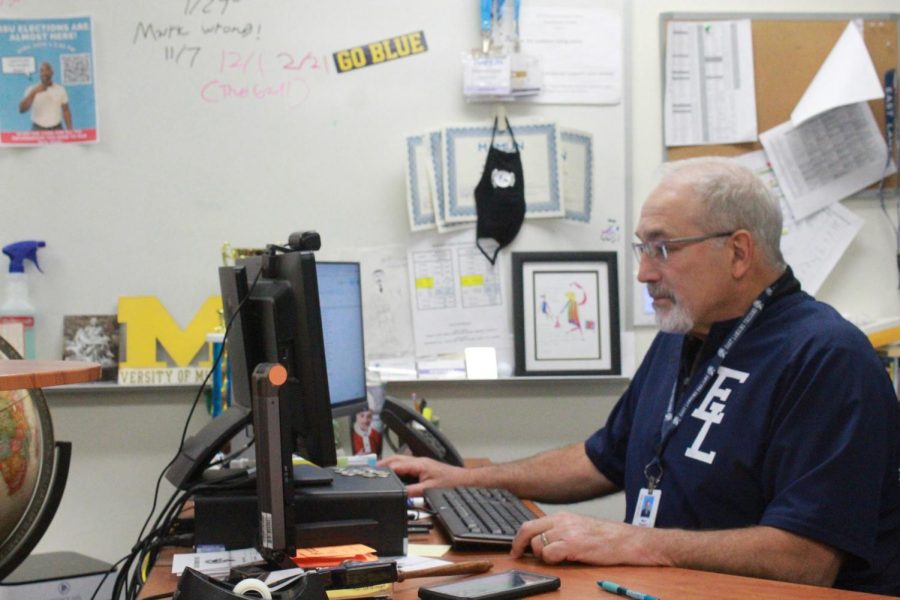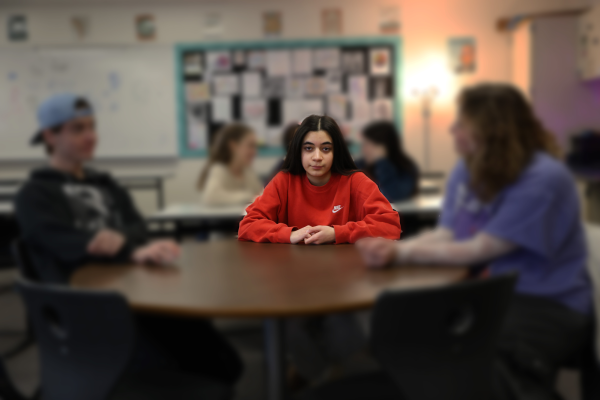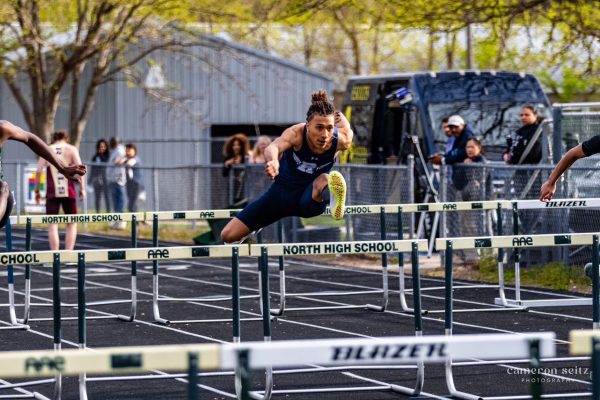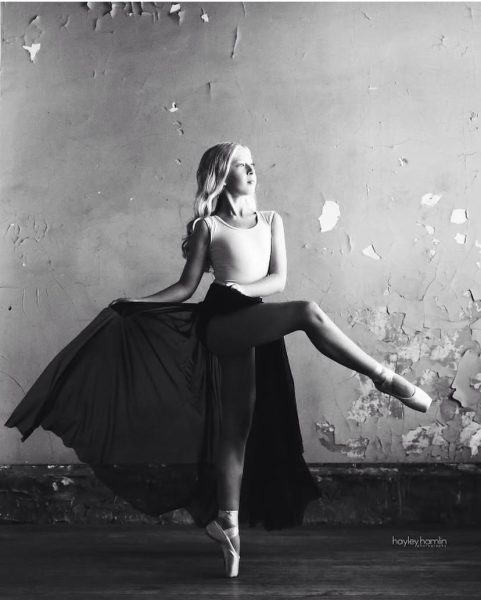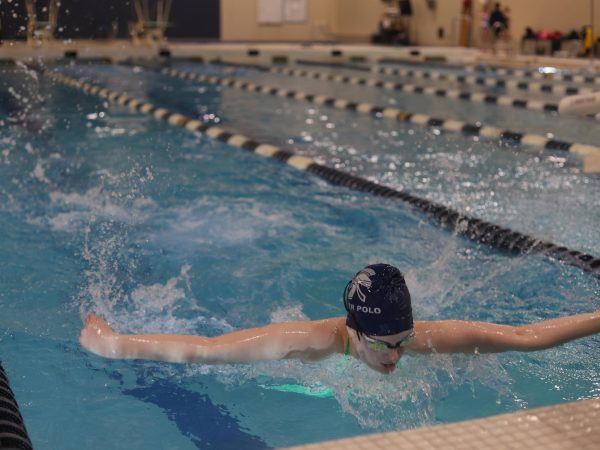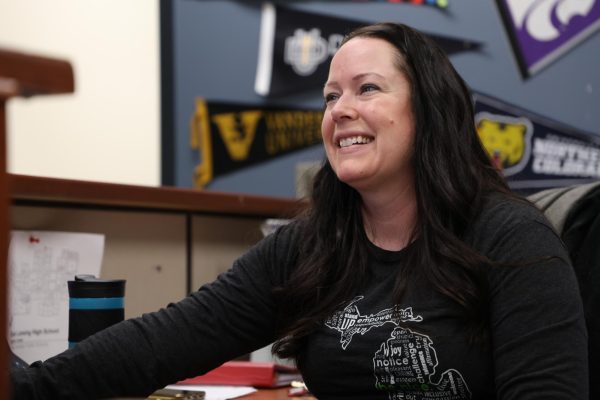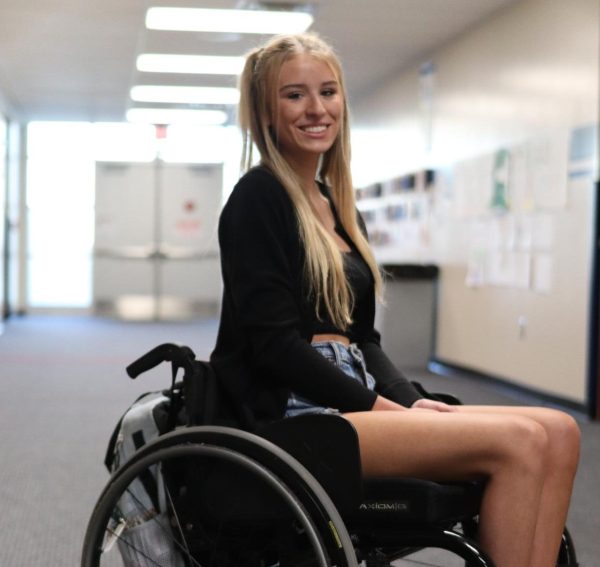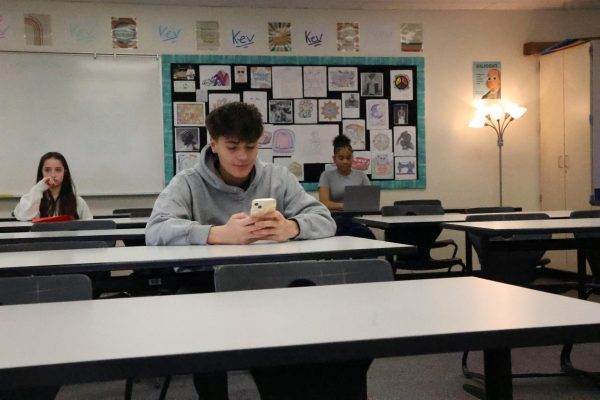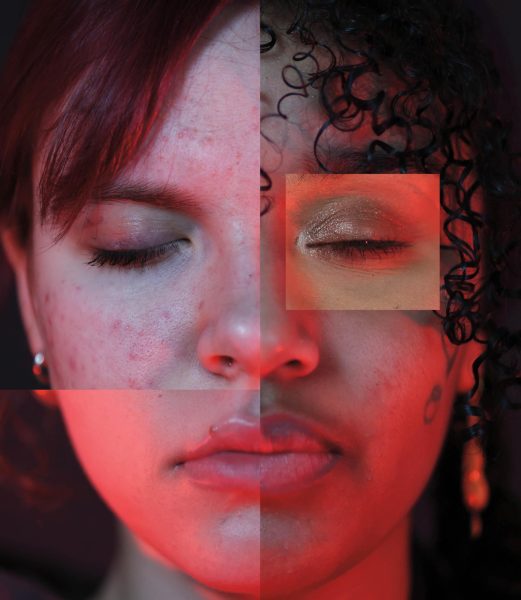Healing our hurt
Teachers and students notice change in work ethic following period of online learning
Art teacher Spencer Corbett had been working at various colleges and high schools in Michigan for nine years before he applied for a job at ELHS in 2020. Corbett’s main goal as a teacher has always been to help and support his students. However, no amount of experience could prepare him for when he was suddenly forced to take his art classes online and teach students a hands-on class, through a computer, at a school he had never taught at before.
“One of the biggest challenges was not being able to get feedback,” Corbett said. “I would talk about what students should try to do in their artwork, but then I wouldn’t be able to see that student’s painting unless they shared it to everyone through Zoom, and very few people were comfortable doing that. There was a lot of guesswork about what my students needed from me.”
Since returning to the building, Corbett has noticed differences in students which he had never seen prior.
“I think in a lot of cases, students don’t understand how strange it is that we have cell phones constantly,” Corbett said. “I feel like the students’ endurance to be able to stay on task and stay invested in learning was a real challenge during online school, and continues to be a challenge.”
Similarly to other teachers, Corbett is concerned about how the social changes during this developmental period of students’ lives will impact not only their high school education but the decisions they have to take on later in life.
“Accountability is a big thing,” Corbett said. “We need students to be aware that there are going to be expectations. I think in a lot of ways we’ve developed a lot of bad habits and students need to understand the importance of showing up every day, being fully engaged and also understanding that there are real world consequences.”
Other teachers in the building, like social studies teacher Mark Pontoni, have also wondered if as a result of the pandemic, students’ drive to take care of their education has weakened. Forced quarantine during COVID-19 caused people to pretty much live in social isolation, making their interactions over technology. Suddenly, everyone was asked to come back and ‘put the phones down’ and have interactions with one another.
However, Pontoni questions if all of the social impacts of the pandemic are yet to have been played out.
“In all environments students should want to learn,” Pontoni said. “So when we gave them permission not to do that, at a very vulnerable age, during middle school age with so much social development and intellectual development it’s possible that the accountability factor is going to be hard to rebuild.”
Similar to other students, Emmerson Davis (11) came into high school without ever taking an exam. This caused a heightened sense of anxiety, making Davis on edge and w
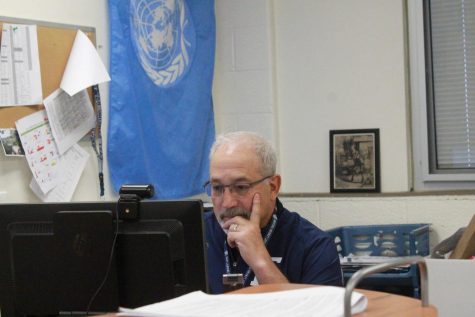
orried about taking her exams. She had spent the past year staying in her bedroom on her computer daily, just closing it to sleep. Her work ethic during this time decreased rapidly.
“It just plummeted,” Davis said. “I used to be a very high achieving student, like I would do every assignment right on time. But during online school, I rarely did assignments and it was very hard to turn in things and stay on top of my workload. It was just very difficult to keep going.”
Coming back to school, Davis has noticed how it has been hard to stay accountable for her work and have the motivation to finish assignments. Reaching out to her friends, talking to her parents about her grades and teachers for support helped push her to do her best in school and be supported mentally.
Ultimately, Pontoni thinks that getting help to overcome the effects of the pandemic is better than the alternative–blaming COVID-19 for everything.
“I am not discounting the fact that [the COVID-19 pandemic] was harsh. I lived through it,” Pontoni said. “But at some point, you have to make a decision and hopefully have the capacity and the help that you need to move forward. Everybody’s gonna do it at a different pace, but everybody’s got to do it.”
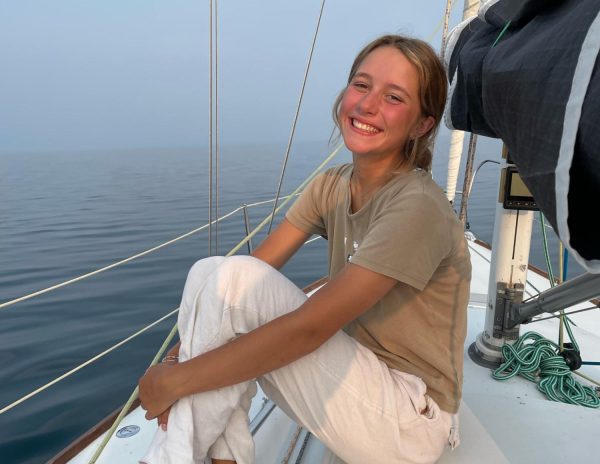
Nina is a member of the Class of 2025 and is a Photography Editor for Portrait. This is her second year on staff as a junior. Nina’s favorite thing about...



